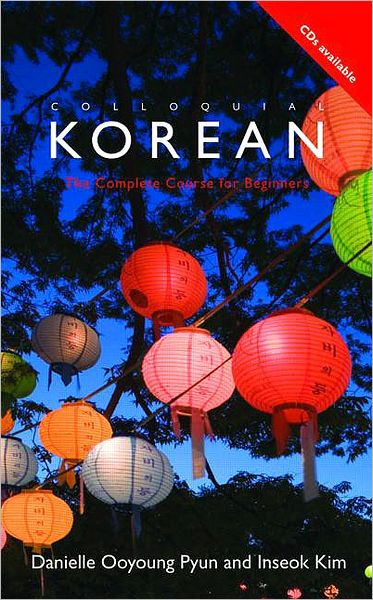Colloquial Korean: The Complete Course for Beginners download
Par rogers sybil le samedi, septembre 19 2015, 21:11 - Lien permanent
Colloquial Korean: The Complete Course for Beginners. Danielle Ooyoung Pyun, Inseok Kim
Colloquial.Korean.The.Complete.Course.for.Beginners.pdf
ISBN: 9780415444781 | 320 pages | 8 Mb

Colloquial Korean: The Complete Course for Beginners Danielle Ooyoung Pyun, Inseok Kim
Publisher: Taylor & Francis
A German commercial used a well known joke to advertise a language course. Jul 25, 2008 - Each audio file begins with a conversation between a man and a woman in the native language (in this case French) beginning with basic introductions and leading up to more complicated exchanges. One of the Some reviewers complained about problems with the integrated translation service, but nonetheless an app like this could serve well for travelers who want to learn colloquial nuances before going abroad. I have to say though that I was pleasantly surprised: the Rocket French course is professionally done, quite effective in its method, and surprisingly engaging. They might also appreciate the fact that there are no ads, so that you can complete your lessons without distractions. The beginner to upper intermediate lessons consist of vocabulary, audio dialogues, and fun interactive texts. Jun 15, 2009 - Colloquial Korean : The complete course for beginners; Coreano para principiantes (autora: KIM, Hye-Jeoung). CAT -És el teu @Duncan: to make it complete as well, Ma haik is also used by lebanese. In love with, he's still hilariously bad at it, but his speech is mostly coherent; it's mainly plurals in the wrong places and incorrectly-conjugated verbs (very, very common beginner's mistakes when learning any language) rather than him saying something completely incoherent and out of context. (or at worst be a complete scam). Aug 23, 2010 - The My Hovercraft Is Full Of Eels trope as used in popular culture, with a list of examples from all media. Jun 21, 2010 - It can also be added at the beginning of the question, as in “Oi que (+ question)?”. No course I've ever seen deals adequately with them … @thomas also in Dutch the suffix hè is analogous to n'est-ce pas; which itself always raises a smile.
The Measure of Man and Woman: Human Factors in Design, Revised Edition epub
